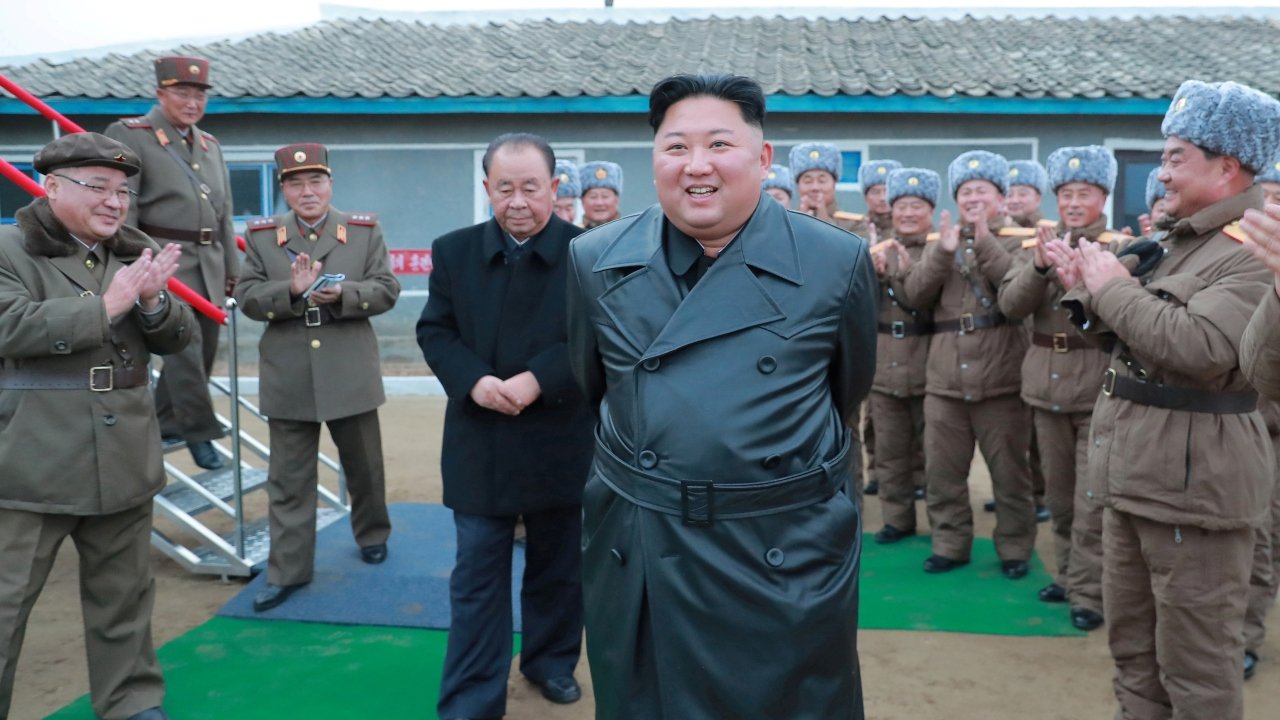The People’s Democratic Republic of North Korea (DPRK) launched 23 ballistic missiles into the sea near the South Korean island of Ulleung, prompting air raid sirens and hurrying towards bomb shelters.
The missiles were in response to Operation “Vigilant Storm” the largest joint military exercise ever between the US and South Korea, involving F-35B stealth aircraft, which the DPRK considered a dangerous provocation not least because the South Korean military explicitly stated they were offensive drills rehearsing attacks on North Korean positions.
The exercises were called “a war drill for aggression mainly aimed at striking the strategic targets of the DPRK in case of contingency in the Korean Peninsula”.
The strike is also the first major incident under the tenure of newly-elected South Korean President Yoon Suk-yeol, a more hawkish right-wing figure who has put forward an “audacious initiative” to entice South Korea to denuclearization in exchange for sanctions relief and economic aid.
The DPRK will never agree to similarly-structured demands, since economic sanctions can be quickly reversed while nuclear disarmament is a long, complex, expensive, and often irreversible process.
Pyongyang stated the launches were a response to “the recent military drills by units of the Korean People’s Army were carried out under the unstable security circumstances created by the U.S. and South Korea”.
“This is very unprecedented and we will never tolerate it,” the Joint Chiefs of Staff of the South Korean military said in a statement.
Back to normal
Since the DPRK detonated a nuclear warhead in 2006, three of the four succeeding American presidential administrations have deployed identical policies for negotiation with the South. The first pillar of the strategy is the maintenance of demands for complete and total denuclearization. The second is the application of brutal and inhumane economic sanctions.
The third pillar is the resolve that DPRK must take steps to denuclearize before sanctions should be lifted.
The only time since 2006 the two countries have come close to talking about the principal of a denuclearized Korean peninsula was under Donald Trump in 2019, who in collaboration with former President Moon Jae-in, managed to almost pull DPRK strongman Kim Jong-un to the negotiation table, until Trump undermined his own policy and appointed perhaps the only person in all the United States whose reputation could have ended the talks before they began, John Bolton, who proceeded to scare the DPRK away with his rhetoric.
Upon releasing his National Security Strategy in 2022, President Biden returned to the Bush-Obama policy, outlined by recent statements by Ned Price, the spokesperson for the current State Department.
Kim Jong-un recently said that unless the US recognizes North Korea as a member of the nuclear-armed states, no negotiations will ever take place.
“I was clear at the time, want to be clear now, that there has been no change to U.S. policy,” Price responded when a reporter asked whether there had been any considerations following Glorious Leader Kim’s recent statement.
“Our DPRK policy remains the complete denuclearization of the Korean Peninsula, and we continue to be open to diplomacy with the DPRK. The complete denuclearization of the Korean Peninsula has been our objective since the conclusion of our DPRK policy review last year. That has not changed. I don’t foresee that changing going forward,” he said.
“We continue to reach out to the DPRK and are committed to pursuing a diplomatic approach. That policy review also found that, in our estimation, a diplomatic, practical, pragmatic approach is the best means by which to effect that overarching objective, the complete denuclearization of the Korean Peninsula,” he added.
There’s something strange about thrice-reiterating the United States’ commitment to diplomacy, but dismissing the only available stated means to deploy it, almost without addressing them.
In September, Kim signed a new decree codifying North Korea’s nuclear weapons doctrine, declaring it would not give up its arsenal unless the rest of the world did the same. It also included the authorization, under few circumstances, of the preemptive use of their arsenal if they believed the existence of their state was threatened. WaL
If you think the stories you’ve just read were worth a few dollars, consider donating here to our modest $500-a-year administration costs.
Continue exploring this topic — Korea — South Korea’s President-Elect Considering Joining Quad and AUKUS – Wants Nukes Under Seoul’s Control
Continue exploring this topic — Korea — North Korea Hawk To Take Power in Seoul—Asia Pacific Set For Continuing Arms Buildup



